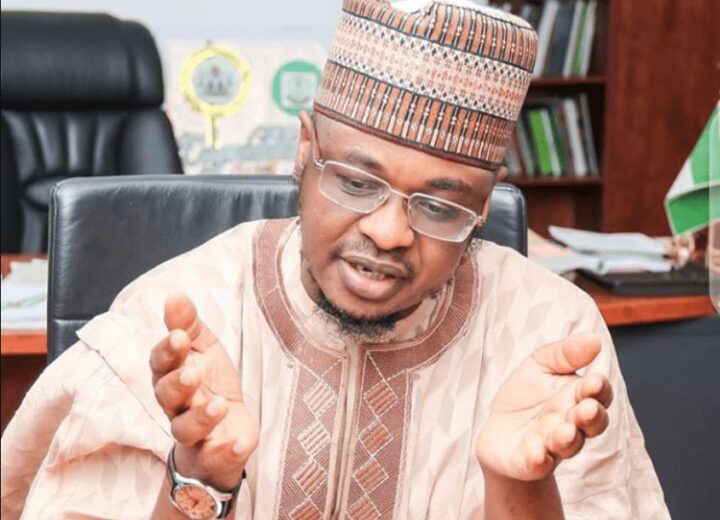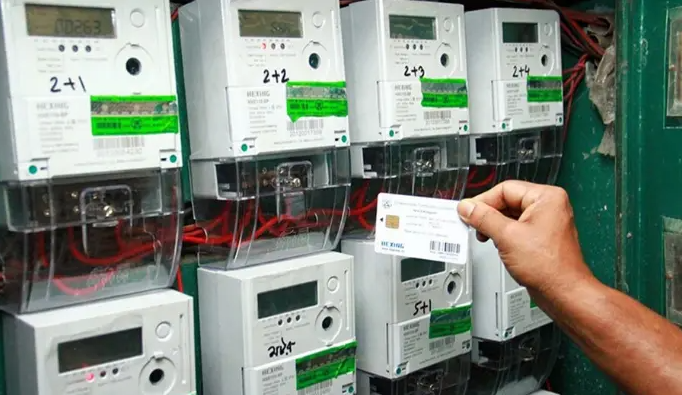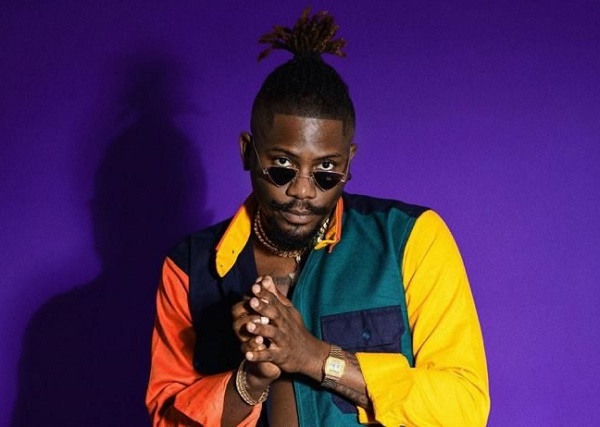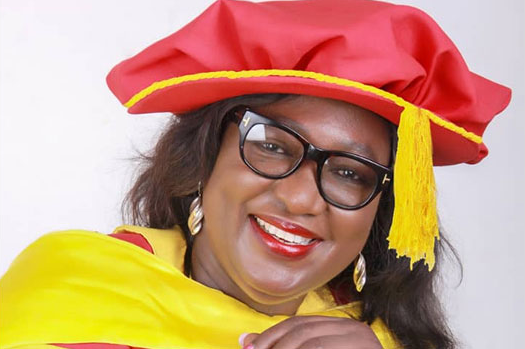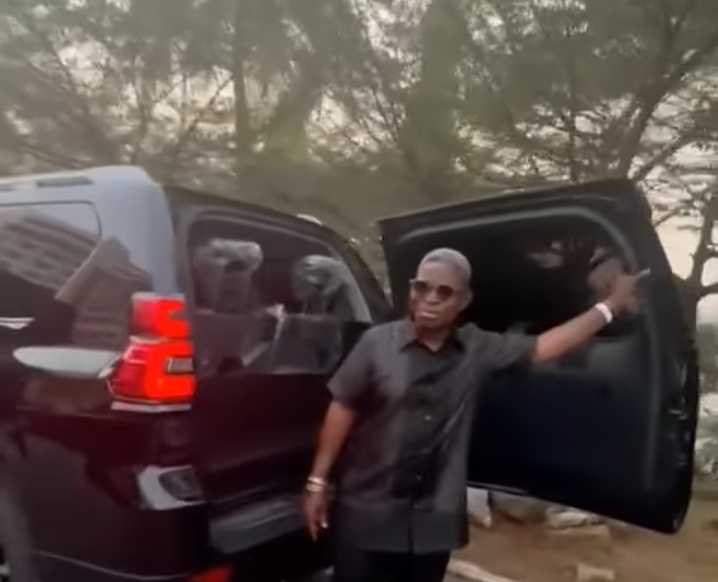The Nigerian political scene witnessed a flurry of events in the outgoing year 2021. Many events and decisions shaped public discourse on and off social media.
Some analysts had predicted that the year 2021 would be chaotic, after the COVID-19 pandemic grounded human and economic activities in the previous year — 2020.
Many will not forget in a hurry the socio-political events that sparked controversies and shaped public discourse in 2021.
Here, TheCable curates the events:
Advertisement
PH REFINERY SAGA
In March, the federal executive council (FEC) approved the sum of $1.5 billion for the rehabilitation of Port Harcourt refinery in Rivers state.
The decision sparked a debate on the rationale of budgeting such a huge amount of money for a refinery that has consumed huge resources without being productive.
Advertisement
Many Nigerians including Peter Obi, former governor of Anambra, said the $1.5 billion rehabilitation is a waste of resources.
But the federal government said the rehabilitation of Port Harcourt will be executed as planned, adding that in 18 months, 90 percent rehabilitation of the refinery would have been completed.
PANTAMI’S PRO-AL-QAEDA VIEWS
Isa Pantami, minister of communications and digital economy, was the centre of a heated controversy in April, over alleged support for terrorist groups.
Advertisement
What appeared like fake news snowballed into calls for the resignation of the communications minister.
Videos from the 2000s where the minister was seen supporting Al-Qaeda and the Taliban resurfaced on social media platforms.
Many Nigerians, including the Peoples Democratic Party (PDP) asked Buhari to sack Pantami, adding that the minister cannot head a position that involves the handling of sensitive national data.
But the minister said he has recanted his past views on the terror groups, and that his position at the time was based on his understanding as a teenager.
Advertisement
DELTA OR FG? — OWNERSHIP OF RECOVERED IBORI LOOT
Another issue that elicited varied reactions was the debate on who should receive the £4.2 million loot recovered from James Ibori, former Delta state governor, and his associates.
Advertisement
In May, the federal government received the £4.2 million loot stashed in the United Kingdom.
The federal government, through Malami, said the recovered loot will be used to fund three infrastructural projects — Lagos-Ibadan, Abuja-Kano expressways and the second Niger bridge.
Advertisement
Although the Delta government insisted that the money ought to be returned to the state, the AGF said the law which Ibori breached is a federal law, and not that of the state.
On May 24, Ahmed Idris, accountant-general of the federation, announced the recovered Ibori loot had been returned to the Delta state government but later backtracked.
Advertisement
VAT SAGA
One of the issues that elicited mixed reactions in 2021 among Nigerians is the debate on value-added tax (VAT).
The stage for the VAT debate was set after a federal high court sitting in Rivers issued an order restraining FIRS from collecting VAT and personal income tax (VAT) and directed the Rivers state government to take charge of the collection.
Following the court order, Rivers and Lagos enacted a law to impose and charge VAT, however, the court of appeal in Abuja ruled that states should maintain status quo pending the determination of an appeal filed by the Federal Inland Revenue Service (FIRS).
The development soon became a regional issue as southern governors resolved that states should collect VAT, while their northern counterparts resolved that the federal government should continue collecting VAT.
In the forthcoming year — 2022 — the supreme court, the apex court of the country, might state its verdict on VAT collection, which will put the controversy to rest.
But the federal government has said a political solution is on the table to resolve the VAT impasse.
OPEN GRAZING AND GRAZING ROUTES DEBATE
Over the past few years, the debate on open grazing has been taking the centre stage in Nigeria’s socio-political space but it took another dimension in 2021.
Owing to the incessant farmer-herder clashes, the southern governors, in May, resolved to ban open-grazing in their region by enacting anti-open grazing laws — a decision that received commendations and condemnations from different parts of the country.
Malami added another twist to the debate when he said the ban on open grazing by the southern governors is equivalent to prohibiting spare parts trading in the north.
The comment of the attorney-general did not go down well with many Nigerians who argued that movement of cattle should not be compared with spare parts trading.
In June, the president said he had directed Malami to recover grazing routes across the country — a development that worsened the controversy.
SCREENING OF ONOCHIE
The screening of Lauretta Onochie, presidential aide, as one of the commissioners of the Independent National Electoral Commission (INEC), was another issue that sparked controversy.
Many Nigerians, including CSOs rejected the nomination of the presidential aide on the grounds that Onochie is a member of the All Progressives Congress (APC).
Amid the criticism, on July 13, the senate rejected the nomination of Onochie, saying she was disqualified based on federal character principle.
TWITTER BAN
Arguably, the most controversial decision taken by the Buhari-led federal government in 2021 was the indefinite suspension of Twitter, the microblogging platform.
The federal government announced the suspension, On June 4, citing “the persistent use of the platform for activities that are capable of undermining Nigeria’s corporate existence” as the reason behind the decision.
However, the decision came some days after the microblogging platform deleted tweets made by the president which had referenced the civil war with threats to treat members of the Indigenous People of Biafra (IPOB) in the “language they understand”.
On several occasions, the federal government announced that it has made “tremendous progress” in resolving the impasse with the platform, and that it would soon lift the suspension.
In October, Buhari, in his Independence Day speech, said it has directed that the suspension be lifted if the conditions are met by Twitter.
As the year comes to a close, there is no sign that Twitter suspension will be lifted in the remaining days of the year. Maybe, it will be lifted in 2022. Who knows?
ABBA KYARI’S INDICTMENT
Arguably, the biggest scandal of 2021 in Nigeria is the indictment of Abba Kyari, the suspended deputy commissioner of police, by the Federal Bureau of Investigation (FBI).
In July, Kyari was said to have received bribes from Hushpuppi, the embattled Nigerian socialite whose real name is Ramoni Abbas, according to US court documents.
Hushpuppi alleged that he bribed Kyari to arrest Vincent, his ally, after a dispute over a $1.1 million scam.
The suspended police officer denied all allegations, saying his hands are clean.
Owing to the indictment, Kyari, who had received numerous awards for his work as a police officer, was suspended by the police authorities and a committee set up to investigate him.
Five months after, the report of the committee has not been made public and no further decision has been taken on Kyari’s case.
FANI-KAYODE’S DEFECTION TO APC
The defection of Femi Fani-Kayode, former minister of aviation, to the ruling All Progressives Congress (APC) from the Peoples Democratic Party (PDP) stirred reactions on and off social media.
On September 16, the former aviation minister put to rest months of speculations and denials regarding his defection when he was presented to Buhari at the presidential villa.
Fani-Kayode’s defection came as a surprise to many Nigerians, owing to the past comments of the former minister about the administration of the APC-led government.
NNAMDI KANU AND SUNDAY IGBOHO
In 2021, the two major secessionist leaders in the country — Nnamdi Kanu, leader of the Indigenous People of Biafra (IPOB), and Sunday Adeyemo, a youth leader, popularly known as Sunday Igboho — were arrested.
While Kanu was arrested in Kenya and brought back to Nigeria, his Yoruba counterpart was arrested in Benin Republic and is currently in detention in the West African country.
Efforts of stakeholders on both sides — south-east and south-west — to secure the release of the secessionist leaders have not yielded results.
Although the federal government is mulling a political solution for the release of the duo, it is not yet clear when they will be released from custody.
#ENDSARS REPORT — THE LEKKI INCIDENT
The report of the Lagos judicial panel on police brutality and Lekki investigation was one of the most controversial matters in Nigeria in 2021.
Hours after the panel submitted its report to Babajide Sanwo-Olu, governor of Lagos, the report on the Lekki incident was leaked on social media.
In the 309-page report, the panel said the shooting of unarmed protesters at the Lekki tollgate on October 20, 2020 could be described in the context of a “massacre”.
The panel also said nine people died during the shooting by soldiers.
However, the federal and Lagos state governments rejected the findings of the panel that nine people died at Lekki.
PETROL SUBSIDY VERSUS TRANSPORT ALLOWANCE
Another issue that raised questions in 2021 was the proposal of the federal government to replace petrol subsidy with the payment of N5,000 monthly transport allowance to “poor” Nigerians.
In November, Zainab Ahmed, minister of finance, budget and national planning, announced that the federal government will remove petrol subsidy by 2022 and replace it with a N5000-a-month transportation grant.
The finance minister said about 30 to 40 million Nigerians, who make up the poorest population of the country will benefit from the grant.
The announcement raised questions on whether the transport allowance is more sustainable and less expensive than petrol subsidy.
Add a comment
